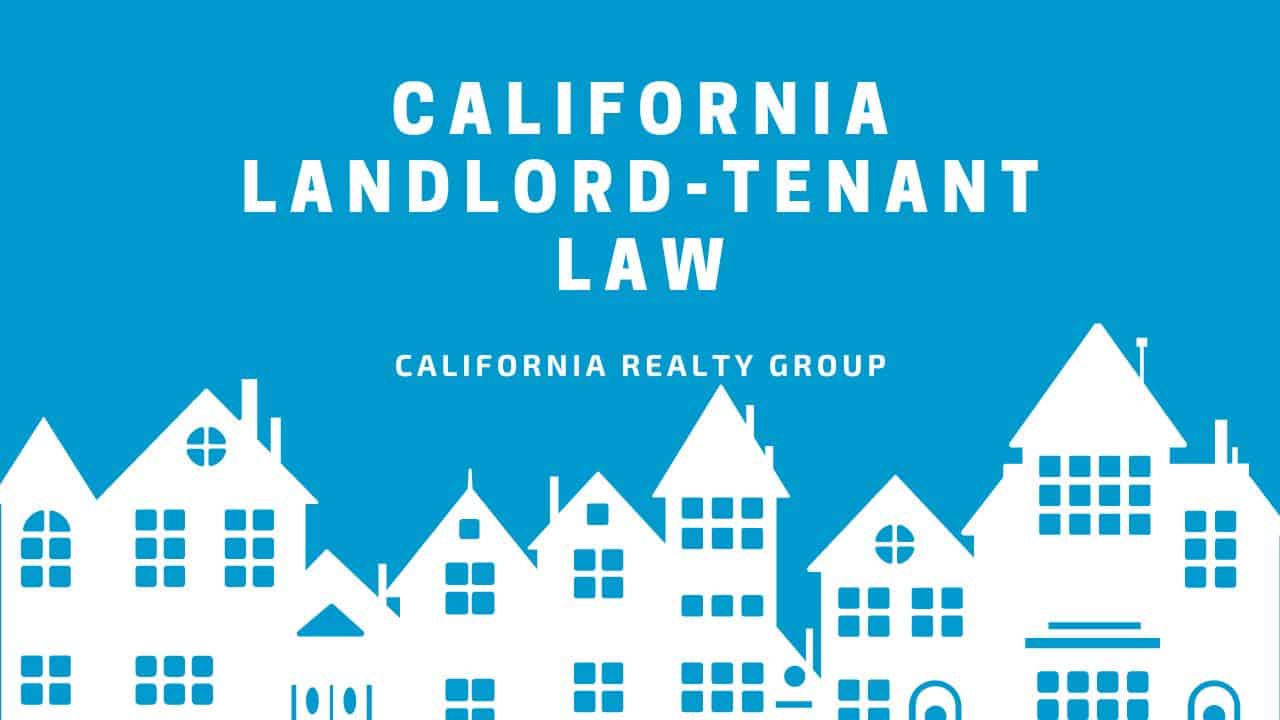California Rental Laws – An Overview of Landlord Tenant Rights
Under California law, landlords and tenants automatically acquire certain rights and responsibilities upon signing a lease agreement.
As a landlord, it is crucial that you fully understand California landlord-tenant law to have a successful tenancy.
The following is a basic overview of everything you need to know.
Necessary Landlord Disclosures in California
The following are some of the disclosures that you must provide tenants with when renting out a property in the state of California according to California landlord tenant laws:
- Concentrations of lead-based paint if renting out a property built prior to 1978.
- Written information regarding bed bugs using language specified in Civ. Code §§ 1954.603.
- Documentation regarding any known mold.
- Disclosure on how utility fees are going to be split among renters in a multi-unit dwelling.
- Knowledge of asbestos for landlords renting out units built prior to 1979.
- Disclosure of any known information regarding drug contamination.
- Disclosure of the tenant’s right to have access to the sex offender registry.
- Providing the landlord’s contact information to the tenant
California Tenant Rights and Responsibilities
These are some of the rights tenants have in the state of California.
A right to:
- Break the lease for certain legally justified reasons, such as, when starting an active military service or for habitability violations.
- Be provided with proper notice prior to entry by the landlord.
- Live in peace and quiet enjoyment.
- Continue occupying the property until the proper eviction process has been followed.
- Reside in a habitable property.
- Have repairs completed within a reasonable time frame after service of proper notice.
When it comes to responsibilities, they are as follows:
- Serve the landlord with proper notice prior to moving out.
- Abide by all requirements of the lease agreement.
- Respect the peace and quiet of other tenants by keeping noise levels down.
- Let the landlord know of needed repairs within a reasonable time frame.
- Pay rent to the landlord on time
California Landlord Rights and Responsibilities
California landlords have certain rights under the residential tenancies act. A right to:
- Require tenants to sign a lease prior to moving in.
- Enforce the terms of the lease or rental agreement
- Evict a tenant for violating the terms of the agreement, such as nonpayment of rent.
- Require tenants to pay a security deposit upon signing the rental agreement.
- Enter the tenant’s rented premises after serving the proper notice.
- Terminate a periodic lease agreement after providing them with the proper notice.
- Be notified when a tenant is looking to leave town for an extended period of time.
The list of responsibilities that California landlords have includes the following.
A responsibility to:
- Abide by all terms of the lease agreement.
- Notify the tenant prior to entering their rented premises.
- Notify the tenant prior to terminating their periodic agreement.
- Abide by the state’s security deposit laws.
- Ensure the unit abides by the state’s safety, health, and building codes.
- Maintain peace and quiet.
- Provide the tenant with the aforementioned mandatory disclosures.
Overview of the California Landlord Tenant Laws
Landlord’s Right to Entry
As a landlord, you have a right to enter your tenant’s rental property under landlord tenant laws. Be that as it may, you have certain obligations that you must abide by when doing so. Firstly, you must provide the tenant with a 24-hour advance notice prior to entering.
California landlords must have a legitimate reason for entry, such as, to inspect the property, to show the unit to prospective tenants, or court order. Finally, you must enter the tenant’s rented unit during normal business hours or as agreed.
The only exception to these rules is if there is an emergency.
Habitability
Landlords have a duty to keep their rental property in a safe and habitable condition. For instance, ensuring that the unit has running hot and cold water, and working smoke and carbon monoxide detectors.
In addition, you must respond to repair and maintenance issues within 30 days of being notified. Specifically, you must make necessary repairs within 30 days of getting written notice.
Evictions
Landlords have a right to evict a tenant for certain justifiable reasons, such as nonpayment of rent, a lease violation, and illegal activity. It is your duty to ensure the process follows the proper eviction procedure.
The following is a basic overview of the process you must follow when evicting a tenant in California.
- Serve an eviction notice.
- File a lawsuit if the matter remains unresolved.
- Serve a copy of the summons and complaint to the tenant.
- Attend the court hearing and await judgment.
- Obtain a writ of possession and have the tenant evicted from the property.
Security Deposits
California law also obligates landlords to abide by certain rules when it comes to the collection of security deposits. Including:
- The maximum amount to collect. You must only ask for a security deposit within two months’ rent.
- What deductions you can make. You can only make deductions in certain situations. such as if the tenant moves out without clearing utility payments or for causing damage exceeding normal wear and tear.
- When to return the deposit. You must return the deposit within 21 days of the tenant moving out.
Lease Termination
Both parties, landlord and tenant, can end a rental agreement after serving proper notice. For instance, to terminate a month-to-month lease, a 30-day notice is required. For instance a 30-day notice is required to terminate a month-to-month lease.
However, a tenant must have a legally justified reason to terminate a fixed-term lease, such as active military duty, landlord harassment, and safety or health violations.
Bottom Line
Landlords have certain rights and responsibilities under state law. Compliance with these laws helps ensure a smooth and successful landlord-tenant relationship, minimizing legal disputes and protecting the rights of both parties involved.
Always refer to a professional’s advice on rent controls laws and local laws about your rental unit. A local property management company can help California landlords with any issues that may arise about their rental properties.
If you have a question or need expert help in managing your property, then look no further than California Realty Group. Our team is here to help you succeed with your investment property. Get in touch to learn more about our services!
Disclaimer: Please note that the information provided in this blog is intended for general guidance and should not be considered as a replacement for professional legal advice. It is important to be aware that laws pertaining to property management may change, rendering this information outdated by the time you read it.




